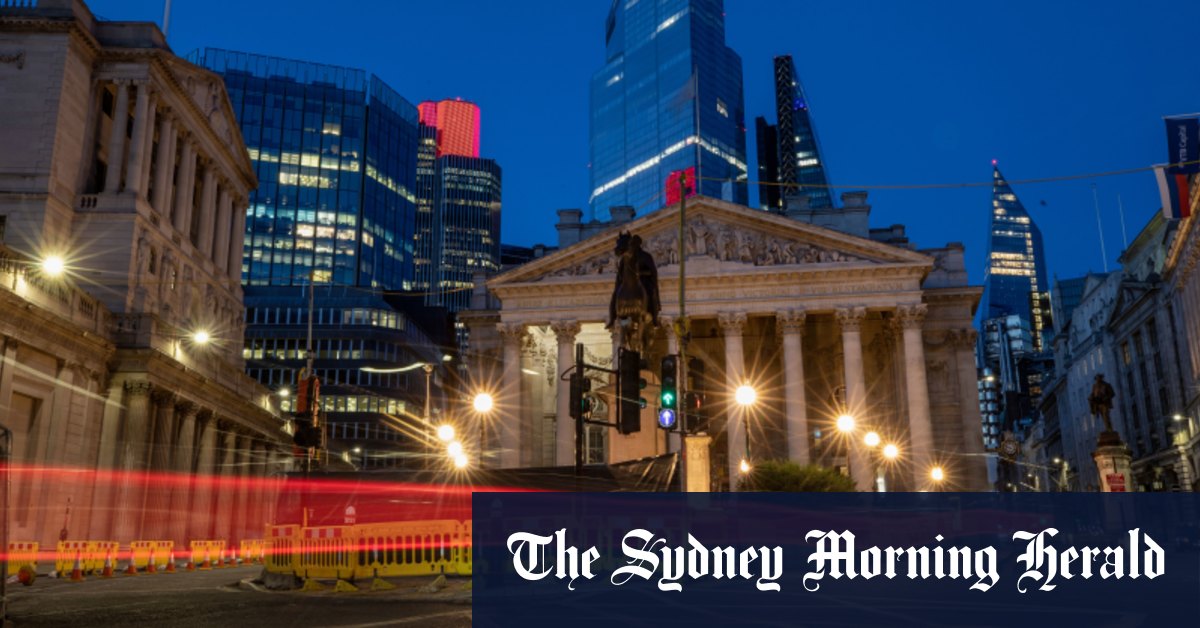Birmingham: Britain is facing a lengthy recession and the worst decline in living standards for a generation after the Bank of England raised interest rates sharply and forecast that inflation would hit 13 per cent by Christmas.
The bank’s lifted interest rates by 0.5 percentage points to 1.75 per cent on Thursday evening, the biggest increase in 27 years, with forecasts suggesting Britain is now facing a much bleaker economic outlook than either the United States or Europe.

A woman rides a bicycle past a job center in Shepherd’s Bush in London.Credit:AP
The bank forecast the country would slide into a 15-month recession later this year, with GDP shrinking by 1.5 per cent next year. Officials expect the slowdown to begin in the fourth quarter of this year, and continue until the end of 2023 – which would indicate a steady economic decline throughout next year.
Households are also more exposed to the energy price shock than in the US, and less protected by government measures than in the eurozone. At the same time, the British economy has also been damaged by the effects of leaving the European Union.
The cost of household gas and electricity is expected to rise in October by another 75 per cent, up from the Bank’s previous forecast of 40 per cent, to about £3,500 ($6,100) a year. By autumn energy bills, which have already risen by 54 per cent this year, will be at triple their level a year earlier.
Annual inflation is expected to rise from 9.4 per cent in June to a peak of 13.3 per cent in October, the highest level since September 1980. It will remain “very elevated” through much of next year before falling back to the 2 per cent target in two years’ time.

People walk past a closed down shop unit on Oxford Street, in London, where energy prices are spiraling.Credit:AP
The pound fell 0.5 per cent against the US dollar to $US1,208, having been 0.7 per cent higher before the announcement. It was down 0.5 per cent against the euro to €1,182.
Against the Australian dollar, the pound dipped as low as $1,735 in response to the rate hike before recovering to around $1,746.
